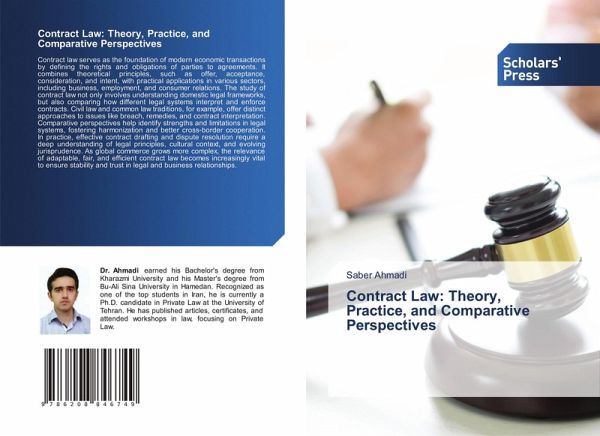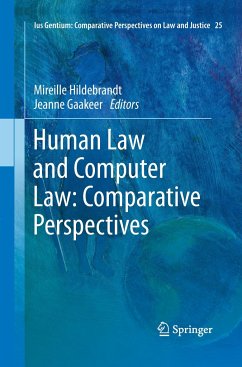
Contract Law: Theory, Practice, and Comparative Perspectives
Versandkostenfrei!
Versandfertig in 6-10 Tagen
43,99 €
inkl. MwSt.

PAYBACK Punkte
22 °P sammeln!
Contract law serves as the foundation of modern economic transactions by defining the rights and obligations of parties to agreements. It combines theoretical principles, such as offer, acceptance, consideration, and intent, with practical applications in various sectors, including business, employment, and consumer relations. The study of contract law not only involves understanding domestic legal frameworks, but also comparing how different legal systems interpret and enforce contracts. Civil law and common law traditions, for example, offer distinct approaches to issues like breach, remedie...
Contract law serves as the foundation of modern economic transactions by defining the rights and obligations of parties to agreements. It combines theoretical principles, such as offer, acceptance, consideration, and intent, with practical applications in various sectors, including business, employment, and consumer relations. The study of contract law not only involves understanding domestic legal frameworks, but also comparing how different legal systems interpret and enforce contracts. Civil law and common law traditions, for example, offer distinct approaches to issues like breach, remedies, and contract interpretation. Comparative perspectives help identify strengths and limitations in legal systems, fostering harmonization and better cross-border cooperation. In practice, effective contract drafting and dispute resolution require a deep understanding of legal principles, cultural context, and evolving jurisprudence. As global commerce grows more complex, the relevance of adaptable, fair, and efficient contract law becomes increasingly vital to ensure stability and trust in legal and business relationships.












